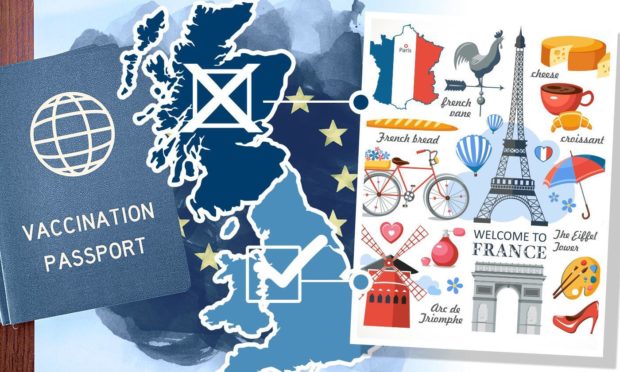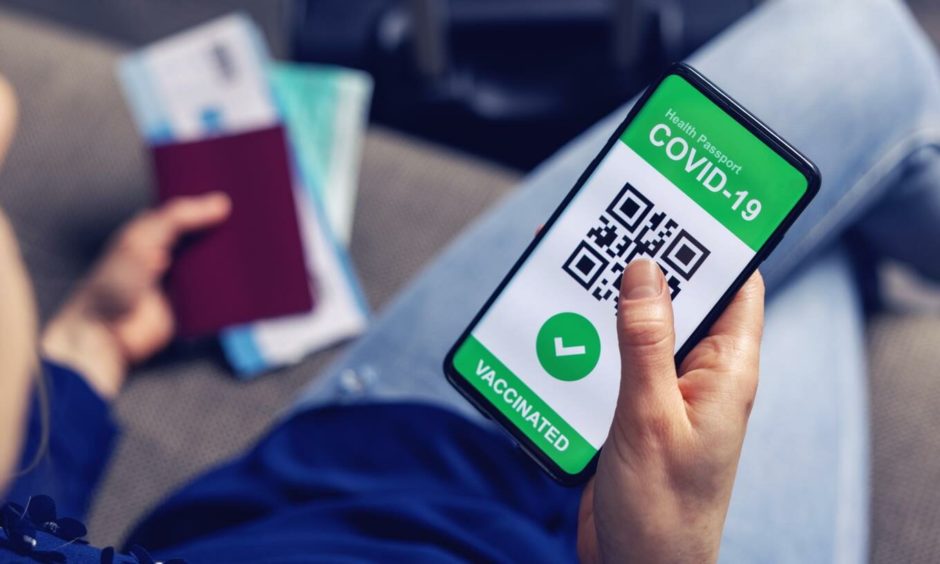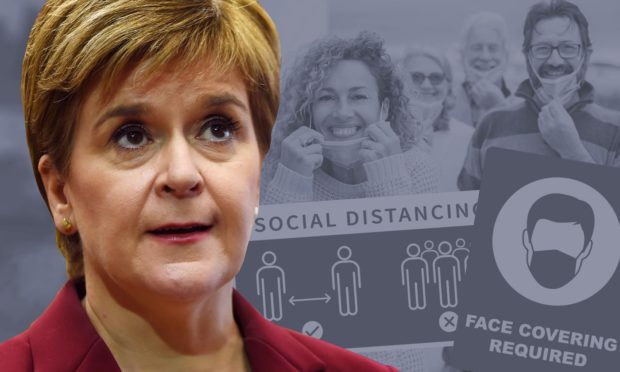Scots traveling to European countries could face problems getting into bars, restaurants, sports events and tourist attractions after it was revealed that Covid vaccine QR codes, launched by Nicola Sturgeon this week, aren’t compatible with major EU digital apps.
The first minister announced the new QR code scheme with much fanfare on Wednesday, saying that vaccine passports would be needed by people who want to go to nightclubs, or attend certain types of live events with more than 500 others.
It’s a similar approach being taken by many countries across Europe who have used a vaccine passport system to open up their societies after long periods of pandemic lockdown.
However while the new Scottish QR codes will be accepted at international borders for travel into Europe, they’re not universally accepted in individual EU countries potentially leaving Scots out in the cold with a piecemeal approach to compliance when it comes to foreign holidays or business travel.
Tests by Jon Worth, an EU politics commentator who has researched the subject of Covid vaccine passports exhaustively this summer, found the new Scottish QR codes are compatible with Ireland’s Digital Covid Cert Checker app, and Belgium’s CovidScanBE app.
These are the apps that staff would use at a bar or restaurant, nightclubs and cultural events to check vaccine compliance before entry.
But Worth’s research shows the Scottish QR codes are not recognised by France’s TACV Verif app, Italy’s VerificaC19 app, or Germany’s CovPassCheck app.
QR codes from England and Wales are however recognised by the French and Italian apps, which means that Scots trying to eat at a restaurant in Paris could be banned from going inside, while their friends or family with QR codes from England and Wales will be allowed to dine.

Scotland’s QR system a month behind England and Wales
Researcher Jon Worth says the fact Scotland now has its own vaccine QR codes “is a case of better late than never”.
“It would still make much more sense for the UK as a whole to join the EU Digital COVID Pass scheme – because now those vaccinated in Scotland have to face the same piecemeal approach those vaccinated in England or Wales have faced for the past month.”
The UK applied to join the EU Digital COVID Pass scheme at the end of July but the process has apparently been held up due to problems with the application.
“I’m pretty sure it’s only a matter of time before these Scottish codes work in France and Italy. But in other countries like Germany I’d doubt they ever will, unless UK joins the EU scheme” says Worth.
“Basically – for the sake of travel – Scotland’s system is now about as good as those from NHS England and Wales were a month ago.”

Criticism from Scottish Conservatives
Scottish Conservative health spokeswoman Annie Wells MSP said Scots were being left behind the rest of the UK because of the “avoidable flaw” and raised concerns over the domestic vaccine passports which are still in development.
She said: “It looks like Scots will be worse off than people in the rest of the UK because of an avoidable flaw in the way that these QR codes work.
“The development of vaccine passports by the SNP Government looks more shambolic as time passes.
“How are we supposed to have any faith that they will be able to get domestic vaccine passports right in a matter of weeks, when they’ve failed to deliver a working QR code for international travel after months of preparation?”
The Scottish Government is currently developing a digital scheme to replace the paper Covid vaccination certificates which it aims to launch later this month.
It awarded a £600,000 contract in June to Danish IT firm Netcompany to develop a vaccine passport similar to ones already in use elsewhere in the UK and Europe.
As we previously reported, Scots tourists or oil workers going to Norway had faced problems proving their vaccination status as the Nordic nation only accepted digital Covid certificates, not paper versions. However Norwegian authorities began accepting Scottish QR codes finally on Friday.
The Scottish Government says their new QR codes “rely on infrastructure hosted by NHSX and shared with other countries by the Foreign and Commonwealth Development Office FCODO.”
“The FCODO has shared the necessary technical information internationally but not every nation has yet implemented it” a Scottish Government spokesperson said.
